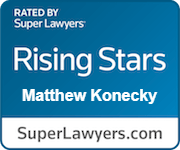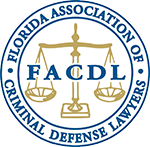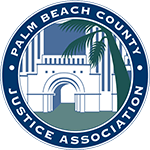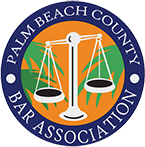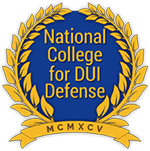So you finally reach the end of your personal injury case and secure a rightfully owed settlement for your injuries. With the worry and stress of your case over, you can focus solely on your recovery, right? In a perfect world, that would be the end of it. But unfortunately, we already know the world isn’t perfect. Now that you’ve received the money, you have to consider if money from a personal injury lawsuit is considered income, or if you have to report a personal injury settlement to the IRS. How do you even get the money from your personal injury settlement? Do you pay taxes on a personal injury settlement in Florida? Are there any personal injury settlements that are not taxable or an exemption in Florida?
The Law Offices of Matthew Konecky has more than 20 years of experience dealing with personal injury cases and settlements, and we have the answers for you. Keep reading as we discuss all the ins and outs of what happens after you’ve received a personal injury settlement in Florida.
Is Money From a Personal Injury Lawsuit Considered Income?
You are entitled to financial compensation following a slip and fall, car accident, or other form of personal injury in order to successfully recover, reimburse medical expenses and/or lost wages, and generally compensate for the pain and suffering you endured. So now that you’ve received a personal injury settlement, you may be wondering if the money is considered income. The short answer is - it depends. The general rule according to the IRS is that any income from whatever source derived is taxable, unless exempt by another code according to IRS Section 61. However, “the key question to ask is: ‘What was the settlement (and its corresponding payments) intended to replace?’ ”. This is clarified in IRS Section 104 that “a taxpayer may exclude gross income ‘the amount of any damages received on account of personal injuries or physical sickness’ through prosecution of a legal suit or action, “. It is important to note that compensation for pain and suffering and emotional distress are taxable if there is not a physical injury; so are punitive damages which should be reported as “Other Income” when filing taxes for that calendar year.
While this is great news, you may be wondering WHY the IRS doesn’t tax the income you received from a personal injury settlement in Florida. The reason is that the settlement amount is meant to be compensatory, and you’ve already suffered a loss equal to the money received. So technically you would not have any additional income for the IRS to tax.
Do You Have to Report Personal Injury Settlement to IRS?
Yes. In Florida and the rest of the United States, you are required to report any income received from a personal injury settlement to the IRS. Even though you may not have to pay taxes on the settlement amount, it is still important to record the income received from your personal injury settlement to the IRS. This is typically filed as other income along with the rest of your income for the calendar year you received the settlement.
How Are Personal Injury Settlements Paid Out in Florida?
Oftentimes, with a highly experienced personal injury attorney by your side, there is no need to file a lawsuit or go to trial in order to be compensated. A personal injury attorney can successfully negotiate a pretrial settlement amount for a personal injury case within a few weeks or months, depending on the details and extent of your accident. Before figuring out how exactly you’ll receive your settlement money from a personal injury, you should know that you will have to pay your dues first. That means paying off any medical expenses and third-party liens, as well as the fees, costs, and expenses that are due to the lawyer who fought for and handled your case. If you suffered injuries as a result of a car accident, your car insurance may also look to be compensated for the no-fault Personal Injury Protection (PIP) that you utilized for lost wages and medical bills following a car crash - up to $10,000.
The remaining settlement amount is sent to you from your personal injury attorney. Typically, most personal injury settlements are paid out in lumpsum, though it is possible to receive a structured settlement amount that compensates you in regular installments over a period of time.
What Type of Settlement is Not Taxable?
In Florida, as in the rest of the U.S., not all personal injury settlements are subject to taxation. As outlined in the first paragraph, money received from a personal injury is considered income. However, because the settlement amount is considered to reimburse you due to an accident or someone else’s negligence, many personal injury settlements are not taxable.
This means generally, compensatory damages intended to reimburse for medical expenses, pain, suffering, and physical injuries are not taxable. It’s important to know that this does not mean that all settlement money from a personal injury suit is not taxable in Florida. For instance, punitive damages and interest on the settlement are taxable. Punitive damages are intended to punish the defendant rather than compensate the victim and are therefore considered taxable income. Similarly, any interest earned on the settlement amount from the time the award is made until it is paid out is taxable.
Can Personal Injury Settlement be Garnished in Florida?
The law in Florida offers protections for personal injury settlements against most garnishments - but not all. Generally, compensatory damages for personal injury are considered exempt from creditor claims.This means that creditors cannot usually access your settlement to satisfy any outstanding debts. But of course, there are exceptions to this such as:
- Child support or alimony: Personal injury settlements can be garnished to cover any past-due child support or alimony payments.
- Liens from medical providers: If medical providers have filed liens against your settlement for services related to your injury, these debts may be satisfied from the settlement amount.
It’s crucial to work with an experienced personal injury attorney who understands the complexities of Florida law to protect your personal injury settlement from unnecessary garnishments.
Contact Our Experienced Palm Beach Gardens Injury Attorney
Navigating the aftermath of a personal injury settlement involves understanding your rights, the tax implications of your settlement, and how to protect your compensation from garnishment. The Law Offices of Matthew Konecky, with over 20 years of experience in personal injury cases in Palm Beach Gardens, Florida, is equipped to guide you through every step of the process. We want you to not only receive the compensation you deserve but to keep it afterward so you can focus on your recovery.
Whether you’re exploring your options for a personal injury claim or seeking advice on your settlement in Florida, we’re here to help. Contact us today to ensure your rights are protected and you get the compensation needed to recuperate following a personal injury in Florida fully.
You can also get more information right now by downloading our guide, “What the Heck Is My Personal Injury Case Worth?”.





